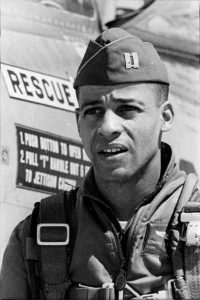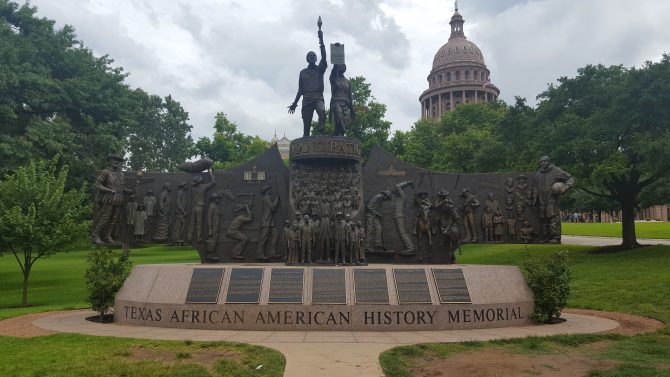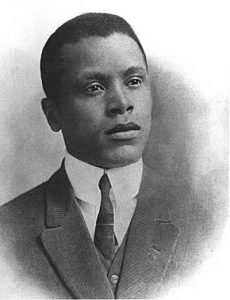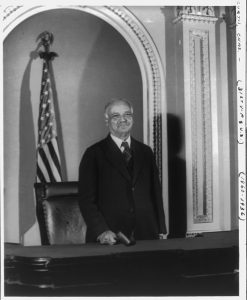We’ve been updating the Children’s Biography section lately, clearing out some older, neglected titles (so long, Brad Johnson and Hannah Montana, we hardly knew ye) to make way for the new. Over the years selecting books for the children’s area, I’ve formed a habit of compulsively checking to make sure we have books on whatever subjects are making news. For instance, during the Women’s World Cup last month, we filled some gaps by adding newly published biographies of Megan Rapinoe and Alex Morgan, and also ordered Illugi Jokulsson’s excellent guide to the tournament’s teams, players, and history.
This month, the 50th anniversary of Apollo 11 took center stage. Along with so many others, I celebrated the human triumph of the first moon walk, but I also learned about one of the saddest “what might have beens” in American history.
In the early 1960's, Ed Dwight was an African American test pilot with similar qualifications to those of the men who would eventually go to the moon. He endured the same rigorous mental and physical training as his peers at Chuck Yeager’s famous astronaut school at Edwards Air Force Base in 1962, but while he was publicly celebrated as America’s first black astronaut, behind closed doors at Edwards, Dwight was subject to coordinated mistreatment intended to break him. He stuck it out and completed the course, only to be left behind when NASA chose its 14 final Apollo astronauts.
Luckily, the creators of Chasing the Moon, an American Experience documentary now available at the library on DVD, made Dwight’s story a focal point, and one of its most powerful moments comes in footage of a disappointed Dwight giving non-answers to reporters questioning him about his future in the space program. By July 1969, America’s first black astronaut was no longer even in the Air Force.
But Dwight never quit. In fact, his life story reveals one amazing accomplishment after another. As a teen, he and his sister integrated their high school. After the Air Force, he helped IBM engineer the world’s first computers, then developed a chain of restaurants. Dwight later earned a Master of Fine Arts and became one of the country’s most prominent sculptors of public historical monuments. Today, at 85, he’s still at work.
I checked the library catalog to make sure we had a book about Ed Dwight, and we don't. I'd love to add a bunch, but I can't find any. They don’t exist. Worse still, Ed Dwight is a Kansan. That high school was Bishop Ward, in Kansas City, Kansas, where he grew up. But there is not a single book Kansas librarians can hand to a kid about one of the most interesting people ever to come from our state.
Unfortunately, over the past year I’ve compiled a sad little list of unwritten books to keep that one company on an empty shelf of shame. National groups like We Need Diverse Books and others have managed to wake up publishers to diverse authors and stories in recent years, but there is still an unacceptable lack of diversity in books by and about Kansans. So I issue this challenge to all authors, illustrators, and publishers who would hear it: Kansas needs diverse books. And here’s a list of subjects, just for starters.
Oscar Micheaux
The past several Oscar seasons have been dominated by controversy about the lack of award winners and nominees of color, and those covering this story often make reference to the “Father of Black Cinema,” Oscar Micheaux. He was from Great Bend, and is buried there. Micheaux founded the first black movie studio, created more than 40 films, and wrote seven books. There needs to be one for children all about him.
Billy Mills
Last year when South Middle School changed its name to Billy Mills, we discovered there are no children’s books about him in print. A used and outdated easy reader from 2004 was the best we could do for the first runner of color to win Olympic gold in the 10,000 meters. An Oglala Lakota who attended Haskell and KU, Mills was an orphan who persisted in the face of great adversity. He still returns to Lawrence regularly, and can be found each November standing at the finish line of the 10K that bears his name, congratulating each finisher with the same dignity and attention (even guys like me, who struggle across to take last place in their age groups). A handshake from a real hero like Billy Mills can make your whole year. It’s time to make a new book about him for kids.
Lucile Bluford
This year the Kansas City Call, one of America’s most historically important black newspapers, celebrates its 100th year in print. Lucile Bluford, who was its long-time editor and publisher, graduated from KU in 1932. In 1939 she applied, and was accepted to the University of Missouri School of Journalism, but was kicked out when they discovered she was black. She sued and won, but MU shut down their journalism school. In 1989 she received an honorary doctorate from MU, where there is also now a residence hall named after her. This would be just one chapter of many in a book about Bluford’s lifetime of fighting for social justice, in word and deed, wherever she saw the need. (Incidentally, while not a Kansan, her nephew, Guion Bluford, actually did become America’s first black astronaut, and flew four Space Shuttle missions. The most recent children’s biography of him was published 14 years ago, and is out of print).
Coleman Hawkins
Charlie Parker is the local musician who usually gets the credit for inventing bebop, but Coleman Hawkins, who went to high school and college in Topeka, recorded "Body and Soul" in 1939, which many consider to be the first real document of the improvisational style Parker made famous. The Coleman Hawkins Jazz Society, based in Hawkins' birthplace, St. Joseph, Missouri, goes a step further in the memorial they unveiled there in 2008, which describes him as the musician who made “the sax a solo jazz instrument.”
Charles Curtis
Do many Kansas kids know that prior to the election of Barack Obama, another Kansan was the only person of color ever to have been elected on a presidential ticket? Charles Curtis, a member of the Kaw Nation, was elected as Herbert Hoover's Vice President in 1928. This capped a long career in national politics, including numerous terms in the U.S. House and Senate. Until January of this year, when historical researcher and reenactor Kitty Frank abridged and published parts of an abandoned autobiographical manuscript located in the archives of the Kansas State Historical Museum Library, there was not a viable book for young readers about Charles Curtis. This one is a great start, but a thorough biography of Charles Curtis written for kids by a contemporary historian is way past due.
I should give credit where it’s due: there have been some great books for kids about historical Kansans of color published recently, among them John Coy’s Game Changer: John McLendon and the Secret Game, Tonya Bolden’s No Small Potatoes: Junius G. Groves and His Kingdom in Kansas, and Carole Boston Weatherford’s Gordon Parks: How the Photographer Captured Black and White America. But many more stories remain to be told, with room right here on our shelves awaiting them. Let’s get to work.
–Dan Coleman is a Collection Development Librarian at Lawrence Public Library.






Add a comment to: Kansas Needs Diverse Books